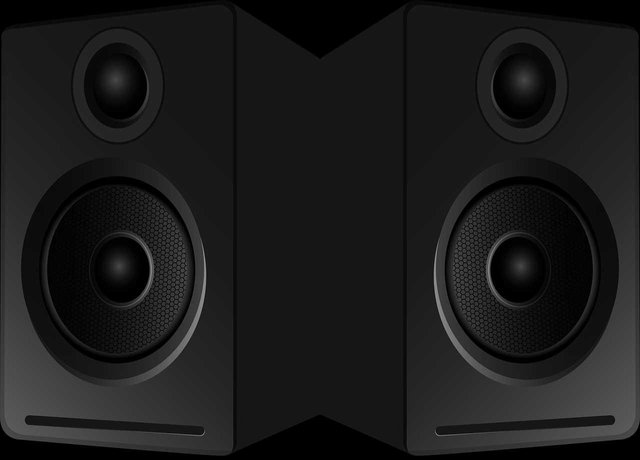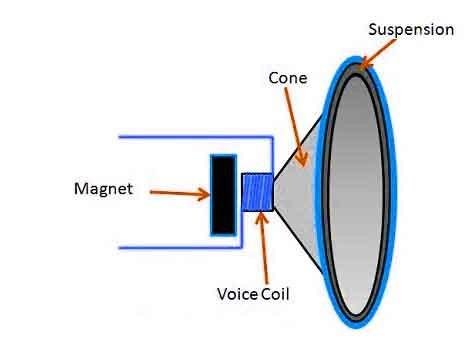How speakers produce sound?
Hello steemian friends may you always healthy. On this occasion I want to share an article that contains how the loudspeakers work, resulting in a larger sound than the original sound.

In everyday life we can easily find speakers. It could be a smartphone speaker, radio, type, and other sound drives like a microphone. Then what speakers and sounds.
According to Wikipedia speakers are loudspeakers (English: loud speakers or speakers) are transducers that convert electrical signals to audio frequencies by vibrating their membrane-shaped components to vibrate the air so that sound waves occur in our ear and we can listen as a voice. (Source)
Do you know what the definition of sound is? Sound is a frequency that can be heard by the human ear that is the frequency ranging between 20Hz - 20.000Hz. The incidence of sound due to the fluctuation of air pressure caused by movement or vibration of a particular object. (Source)
Types of speakers
Based on the frequency of sound that can be generated, speakers are divided into several types, I quote from here (source)
Woofer Speaker: The only dominant speaker produces low-frequency sound
Middle Speaker: The dominant speaker produces sound with medium frequency
Speaker Tweeter: The only dominant speaker produces high frequency sound
Full Range Speaker: Spreader with broad spectrum where low frequency to high frequency can be passed (generated). (Source)
The sound generated from each speaker will vary. Depending on the size of the normality of electric current and the friction generated from the magnet and the performance of the components therein.
How the process of working speakers so that the sound sounds?
Now let's have a look at the components that are incorporated in a speaker (or sound drive). In a speaker we can find components such as, magnets, membranes, magnetic coils, coil lids and frames as the main parts. To be able to produce sounds then the magnetic coil must be flowed by an electric current to produce motion and generate sound on the speakers (source)

From the picture above we can see that the work process components in a speaker is very simple. There are only four components that work together to produce a sound. With the flow of electricity of course.
Speakers have an electromagnetic component consisting of coils called voice coil. This component is used to generate a magnetic field and interact with a permanent magnet capable of moving the speaker cone forward and backward. Electrical waves passing through the voice coil will cause the direction of the magnetic field to change rapidly so that the pull and pull with the permanent magnet. (source)
Vibration back and forth caused by magnetic attraction that is near the voice coil so it can produce sound. In a speaker.
According to one physicist (source)
One of the properties of energy is that it can be transformed from one form to another, whether it is heat energy, motion, electricity, chemistry, or other forms of energy. All forms of energy can be converted to other forms of energy as needed, including electrical energy into sound. Well, the sound is a change of pressure in the air which is propagated by the medium from the source of sound to the surrounding environment, including to our eardrums, so we can hear the sound. (Source))
Conclusion
Speakers are changes in electrical energy with vibration of magnets and some other components to produce sound.
There are four types of speakers that are known for different sizes of frequency generated. Such as :
Woofer Speaker The only dominant speaker produces low-frequency sound
Middle Speaker: The dominant speaker produces sound with medium frequency
Speaker Tweeter: The only dominant speaker produces high frequency sound
Full Range Speaker: Spreader with broad spectrum where low frequency to high frequency can be passed (generated). (Source)
Speakers have an electromagnetic component consisting of a coil called the voice coil This component is used to generate a magnetic field and interact with a permanent magnet capable of moving the speaker cone forward and backward to produce sound.
That's how a speaker works I quote from multiple sources. May be useful. If there are any shortcomings please give your comments to improve other posts. Thanks.
Reference Article: